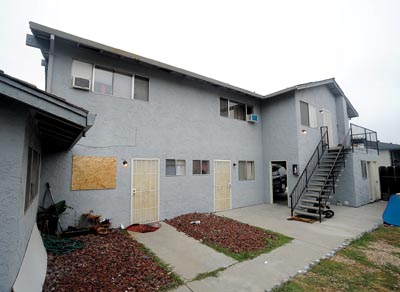The Hollister Police Department has denied a formal request for
the audio or transcript from the 911 call reporting the July 11
murder-suicide on Diablo Drive, but the chief did release a short
summary of that conversation, according to the response letter from
the city official.
The Hollister Police Department has denied a formal request for the audio or transcript from the 911 call reporting the July 11 murder-suicide on Diablo Drive, but the chief did release a short summary of that conversation, according to the response letter from the city official.
In his response to the Free Lance’s request under the California Public Records Act, Police Chief Jeff Miller responded in a letter that the department – as he had noted in prior communications – will not release the detailed version of the audio or a written transcript with private information redacted, as requested. State law requires release of the audio, a transcript or a detailed summary of it.
Miller noted the denial of the full audio or transcript – “to protect the privacy and confidentiality of callers,” according to the document. He also noted how the department as a policy does not release audio or transcripts of 911 conversations. Miller gave examples such as “medical information or attitudes or emotions about an event or person” and “people without documentation of immigration status” fearing the release of such tapes resulting in contact from Immigration and Customs Enforcement.
He did provide a four-sentence summary of the phone conversation. That summary reads as follows:
“On July 11, 2010 at 9:12 p.m. county communications dispatchers received a 9-1-1 call from a woman reporting that her mother had been shot, adding later that her mother was dead. The woman reported that the man who had shot her mother had shot himself. She also reported that she, too, had been shot, was in pain, and that she could not move. She reported that her daughter, who was at the residence, had not been injured.”
Miller in his response did cite a case, Haynie v. Superior Court (2001), noting how the public is not necessarily entitled to receive actual copies of the tapes or transcripts. As he acknowledged, though, the public is entitled to specific information from the report. And the law merely requires the public agency to leave out certain information, such as that relating to juveniles.
But according to an expert on open records in California, the department does not have the legal right as a general policy to deny the release of 911 communications. Jim Ewert, an open records attorney for the California Newspaper Publishers Association, also noted how the city would have to cite specific case law or a statute exempting the release of the 911 information in a particular case, such as the murder-suicide July 11.
Ewert pointed out how the public already knows the name of the suspected shooter and victim.
“So why would the 911 tape tend to disclose anything in addition, as far as protecting her privacy or anything else, that hasn’t already become public knowledge?” Ewert said.
Ewert noted that if you enter “911 tapes” into a Google search engine, there are a “whole plethora of disclosures where police and fire departments disclosed the tapes.”
“And quite frankly,” said Ewert, of the chief, “he’s got to interpret the law narrowly.”
Investigators allege that shortly after 9 p.m. that Sunday night, Enrique Rosales Alvarez, 51, shot and killed Dora Gutierrez, 42, at the apartment complex in the 1400 block of Diablo Drive where they had lived as a couple for about two years. Authorities believe the two recently had become separated. They allege Alvarez also shot Gutierrez’s daughter, in the abdomen area, but she survived after treatment at a Bay Area hospital. That woman’s 5-year-old daughter also was at the home during the shootings, but did not get injured.
As a comparison with the county sheriff’s office, that agency did release a transcript of 911 audio after Cheryl Busch was suspected of shooting and killing her 19-month-old daughter at a residence on Shore Road.









